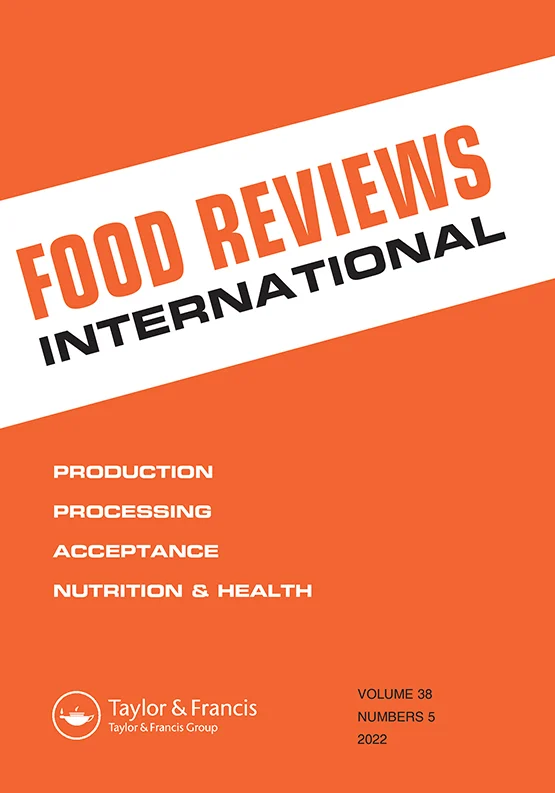Advances and Perspectives of Selenocompounds as Dietary Supplements to Ameliorate Obesity Biomarkers: From Field to Market
IF 6
2区 农林科学
Q1 FOOD SCIENCE & TECHNOLOGY
引用次数: 0
Abstract
ABSTRACTSelenium in its organic form (such as selenoproteins) is involved in human metabolism, acting as an antioxidant and reducing inflammatory biomarkers associated with overweight and obesity. Nevertheless, their functionality depends on the selenium intake and individuals’ physiological status. The adequate intake of this nutrient has been revised for health experts, and slight adjustments to the Daily Intake Reference Values occurred to avoid toxicity or deficiency and to exert beneficial effects in specific biomarkers such as glutathione peroxidase activity and SELENOP concentration. However, there is a gap in understanding the metabolic effects of selenocompounds in subjects or experimental models with obesity, but promising results have been documented to be included as a coadjutant in this disease treatment. In this sense, many strategies have been developed worldwide to produce Se-enriched foods and supplements containing selenocompounds to increase the accessibility for consumers. In this review, the effects of Se and selenocompounds on the central overweight and obesity biomarkers in different experimental models are addressed. Likewise, the most recent strategies for selenium enrichment in agricultural products and the main trends in selenium-enriched foods and supplements on the global market are discussed.KEYWORDS: SeleniumObesitySupplementationBiofortificationSelenoPGlutathione peroxidase Disclosure statementNo potential conflict of interest was reported by the author(s).Additional informationFundingThis work was supported by the Tecnologico de Monterrey under the Challenge-Based Research Grant. Limón Aguilera thanks CONAHCyT for her doctoral scholarship.硒化合物作为膳食补充剂改善肥胖生物标志物的进展和前景:从田野到市场
摘要有机形式的硒(如硒蛋白)参与人体代谢,作为抗氧化剂和减少与超重和肥胖相关的炎症生物标志物。然而,它们的功能取决于硒的摄入量和个体的生理状态。健康专家对这种营养素的适当摄入量进行了修订,并对每日摄入量参考值进行了轻微调整,以避免毒性或缺乏,并在特定生物标志物(如谷胱甘肽过氧化物酶活性和SELENOP浓度)中发挥有益作用。然而,在了解硒化合物在肥胖受试者或实验模型中的代谢作用方面还存在差距,但已经记录了有希望的结果,可作为该疾病治疗的辅助剂。从这个意义上说,世界各地已经制定了许多战略来生产含硒化合物的富硒食品和补充剂,以增加消费者的可及性。本文综述了硒和硒化合物在不同实验模型中对中心超重和肥胖生物标志物的影响。此外,还讨论了农产品富硒的最新策略以及全球市场上富硒食品和补充剂的主要趋势。披露声明作者未报告潜在的利益冲突。这项工作由蒙特雷科技局在基于挑战的研究资助下提供支持。Limón阿奎莱拉感谢CONAHCyT为她提供的博士奖学金。
本文章由计算机程序翻译,如有差异,请以英文原文为准。
求助全文
约1分钟内获得全文
求助全文
来源期刊

Food Reviews International
工程技术-食品科技
CiteScore
11.50
自引率
1.70%
发文量
127
审稿时长
>24 weeks
期刊介绍:
Food Reviews International presents state-of-the-art reviews concerned with food production, processing, acceptability, and nutritional values—examining the relationship of food and nutrition to health, as well as the differing problems affecting both affluent and developing nations. Offering technical solutions to critical global food dilemmas and shortages, Food Reviews International contains articles of interest for:
•food scientists and technologists
•food and cereal chemists
•chemical engineers
•agriculturists
•microbiologists
•toxicologists
•nutritionists
 求助内容:
求助内容: 应助结果提醒方式:
应助结果提醒方式:


